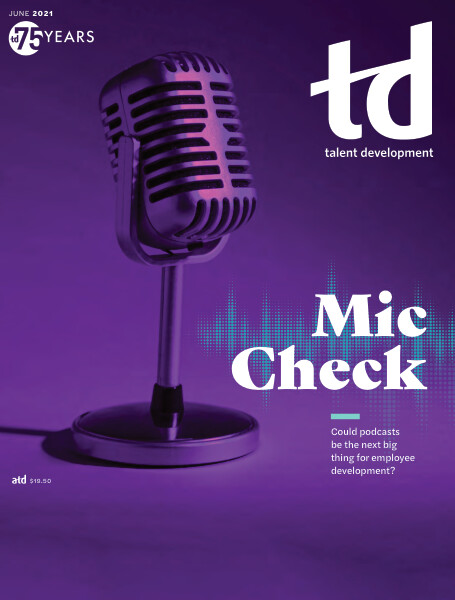TD Magazine Article
Gen Z Is Facing Work-Life Struggles
As telework continues, all employees—especially younger workers—need support finding balance.
Tue Jun 01 2021

Bookmark
Work-life balance and employee wellbeing have become top concerns for organizations and talent development professionals in recent years. The sudden shift to remote work in light of the COVID-19 pandemic further skewed the division between work and personal lives.
In its 2021 Work-Life Balance Survey, commercial real estate blog CommercialCafe investigated how more than 1,500 employees are coping with remote work this year, focusing on the different generations and their stress levels. Half of respondents said they continue to telework, but they have mixed feelings about it.
Of the baby boomer (born 1964 or earlier), Gen X (1965–1980), millennial (1981–1999), and Gen Z (2000 or later) generations, the new working arrangements have left Gen Zers dissatisfied the most. Only 45 percent of zoomers are happy with their work-life balance, compared with other generations at 68 percent or higher. More than one-third also feel more strongly that the balance has worsened since the pandemic began versus around one-fifth each of millennials and Gen Xers. The majority of baby boomers feel it has remained the same.
A side effect of work-life imbalance is stress, which the survey finds declines with each older generation. More than half of zoomers experience some to a lot of work-related stress, whereas only 34 percent of baby boomers do, and millennials' and Gen Xers' stress levels fall in the middle. Because Gen Zers are just starting their careers, they feel pressure to work more hours to prove their worth to employers, absent being able to network or build relationships with colleagues in person.
Talent development professionals can help ensure younger workers aren't burning out before companies can reopen offices safely by designing orientation and onboarding that provide opportunities for new hires to establish and maintain connections to their new team and other staff. Talent development professionals can also coach managers on frequently checking in with employees around healthy work-life balance behaviors and encouraging them to identify destressing activities, such as exercising, sleeping, or spending time with family.

More from ATD

